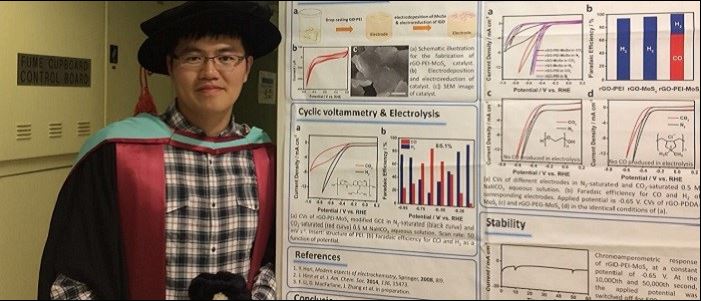News
3D printing bone tissue
Jun 28 2022
ACES PhD Graduate, Dr Fengwang Li, is currently working as part of the Sargent Group at the University of Toronto. Fengwang was the recipient of Monash University Science Faculty’s Mollie Holman award for the best thesis in the Faculty for his thesis entitled: “Two-Dimensional Catalysts for Electrocatalytic CO2 Reduction”.

Where are you going?
I am currently working as a postdoctoral fellow in the Sargent group at the University of Toronto. I hope to find an academic position in Australia in the future to continue my research work on renewable energy.
Why did you choose the ACES Cab to get you there?
To be honest, I didn’t expect to be involved in the ACES family before starting my PhD study. But I clearly remember when Doug and Jie proudly introduced ACES to me during my first individual meeting with them. Being a member of ACES, I have had a lot of opportunities to understand what the leading scientists in a quite a range of disciplines are interested in and putting their efforts to. I also have many chances to communicate with the electrocatalysis guys, to learn from each other and work together to make fancy ideas come true. Recalling this experience in ACES, I feel lucky to be part of it and grow with it.
What was your research about?
Here at Toronto, I am mainly focused on converting CO2 to value-added hydrocarbons, especially ethylene with high activity, selectivity and durability using renewable electricity as energy input. Renewable energy generation is my ongoing research interest ever since I joined ACES in 2014. With rich experience gained from Dr. Jie Zhang and Prof. Douglas MacFarlane’s groups, I believe I can push this promising and rapidly developing science into real application, together with great collaborators in the Sargent group.
What was the outcome? Why was this important?
For the short term, the direct outcome of my research is a new avenue to the production of hydrocarbons. But more significance lies in the long term. The conversion of greenhouse CO2 to hydrocarbons using renewable electricity is able to largely decrease our reliance on fossil fuels in such a way that is compatible with our currently well-established pipelines and infrastructures. In this closed carbon cycle, the human will not emit net CO2 but develop in a sustainable way instead.
What is playing on the radio right now?
You’ll Never Walk Alone













